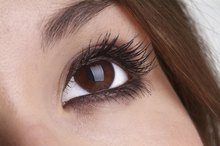Healthy Hair Growth in Women After Menopause
As women age, ovaries stop producing eggs and the menstrual cycle ceases. Menopause can cause some unpleasant symptoms such as hot flashes, irritability, a decline in bone mass, reduced estrogen levels, depression, brittle nails and hair loss. Improved nutrition provides a woman with the vitamins, minerals and other nutrients needed for healthy hair growth 1.
Transporting Oxygen to the Scalp
Folic acid is a member of the B-vitamin complex. The vitamin helps the body produce red blood cells. Red blood cells are essential for healthy hair growth because they transports needed oxygen to the scalp and hair follicles. A folic acid deficiency also can cause anemia, fatigue, irritability, loss of appetite and mood swings. Natural sources of folic acid includes spinach, kale, chard, broccoli, pinto beans, lentils and nutritional yeast.include:
- Natural sources of folic acid includes spinach
- kale
- chard
- broccoli
- pinto beans
- lentils
- nutritional yeast
- Folic acid is a member of the B-vitamin complex.
- A folic acid deficiency also can cause anemia, fatigue, irritability, loss of appetite and mood swings.
Manufacturing Protein
What Vitamins & Minerals Do Eyebrow Hairs Need to Grow?
Learn More
Magnesium is a mineral menopausal women should include in their diet to foster hair growth. Magnesium works inside your cells to produce energy and manufacture protein. This is important for hair because it is made of protein cells called keratin. Symptoms of a magnesium deficiency include high blood pressure, an irregular heartbeat, insomnia and anxiety. Natural food sources of magnesium are dark green vegetables, nuts and seeds, whole grain and beans.
- Magnesium is a mineral menopausal women should include in their diet to foster hair growth.
- Natural food sources of magnesium are dark green vegetables, nuts and seeds, whole grain and beans.
Stimulating the Hair Follicles
Iron deficiencies are common in postmenopausal women and symptoms include:
- fatigue
- mental confusion
- anemia
- poor endurance
- mental confusion
- brittle nails
- hair loss
Iron is essential for hair growth because it produces hemoglobin. This chemical compound carries oxygen throughout your body including to the scalp to stimulate your hair follicles.
Producing Red Blood Cells
How to Increase Keratin
Learn More
Vitamin B-12 is an important nutrient because it is essential in maintaining a normal appetite, making red blood cells and hair growth. Possible signs of a deficiency include anemia, fatigue, reduced appetite, nervous system disorders and hair loss. If you are a vegetarian, pay special attention to getting this nutrient. You can also get this vitamin from nutritional yeast and tempeh, a fermented soybean food.
- Vitamin B-12 is an important nutrient because it is essential in maintaining a normal appetite, making red blood cells and hair growth.
- You can also get this vitamin from nutritional yeast and tempeh, a fermented soybean food.
Building Blocks for Hair Growth
Amino acids primarily act as building blocks for neurotransmitters that help your nervous system to work. The body uses essential amino acids as an energy source and helps vitamins and mineral function optimally for hair growth 1. Essential amino acids also build protein, which is needed for healthy hair.
Related Articles
References
- Healing Power of Vitamins, Minerals, and Herbs; The Reader's Digest Association
- Nutrition for Women The Complete Guide; Elizabeth Somer
- The Food Bible; Judith Wills
- Phillips TG, Slomiany WP, Allison R. Hair Loss: Common Causes and Treatment. Am Fam Physician. 2017;96(6):371-378.
- Watras MM, Patel JP, Arya R. Traditional anticoagulants and hair loss: a role for direct oral anticoagulants? A review of the literature. Drugs Real World Outcomes. 2016;3(1):1-6. doi:10.1007/s40801-015-0056-z
- Urysiak-czubatka I, Kmieć ML, Broniarczyk-dyła G. Assessment of the usefulness of dihydrotestosterone in the diagnostics of patients with androgenetic alopecia. Postepy Dermatol Alergol. 2014;31(4):207-15. doi:10.5114/pdia.2014.40925
- Vincent M, Yogiraj K. A descriptive study of alopecia patterns and their relation to thyroid dysfunction. Int J Trichology. 2013;5(1):57-60. doi:10.4103/0974-7753.114701
- Peters EMJ, Müller Y, Snaga W, et al. Hair and stress: A pilot study of hair and cytokine balance alteration in healthy young women under major exam stress. PLoS ONE. 2017;12(4):e0175904. doi:10.1371/journal.pone.0175904
- Pratt CH, King LE, Messenger AG, Christiano AM, Sundberg JP. Alopecia areata. Nat Rev Dis Primers. 2017;3:17011. doi:10.1038/nrdp.2017.11
- American Academy of Dermatology. Alopecia Areata: Overview.
Writer Bio
Yasser Bailey resides in Austin and began writing articles in 2003. Her articles have been published in the University of Texas campus newspaper and "Self" magazine. She received her Bachelor of Arts in business and government from the University of Texas at Austin. Bailey also just completed her Master of Arts in educational leadership from the University of Texas at Arlington.









